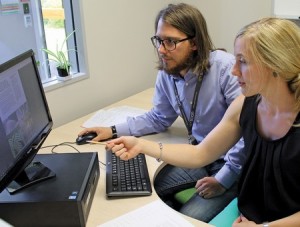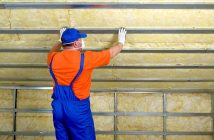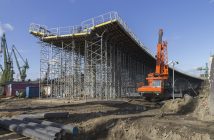Scion’s partnership with Belgian-based research and development organisation VITO has grown from strength to strength since the initial partnering in 2015.

Brought together by complementary expertise and a shared desire to commercialise more bio-based materials, the Scion and VITO partnership has expanded into New Zealand’s built environment.
Scion Science Leader Doug Gaunt says, “Our projects with VITO have been very successful and that prompted us to thinking about what we could do next.
“We’ve chosen to focus on the sustainability of New Zealand’s built environment. It’s a growing trend internationally, and VITO has a lot of experience in this area”.
This led to a collaboration between VITO’s Sofie de Regel (Sustainable Built Environment Researcher) and Sustainable Architect at Scion, Andrea Stocchero.
The programme saw Stocchero visit VITO at the EnergyVille center in Belgium and, in return, de Regel came to New Zealand for a scientific secondment at Scion.
The purpose of de Regel’s secondment was to gauge the awareness and existing capabilities for environmental assessments of building and bio-based materials in New Zealand.
de Regel and Stocchero spent four weeks meeting with New Zealand building industry associations, research institutions, product manufacturers and building supply companies to gather insights straight from key stakeholders.
Now they are collaborating to summarise New Zealand’s best practice, barriers and gaps to define how Scion and VITO can best support a wider sustainability uptake within the built environment.
Assessing environmental performance
The primary tool that researchers use to assess environmental impact is a life cycle assessment (LCA).
LCAs are recognised by industry and regulators worldwide as a reliable and comparable method to assess the environmental performance of products, processes or services.
For the built environment, that includes building materials, building elements and buildings as a whole.
An LCA assesses (potential) environmental impacts and benefits of the subject, throughout its life cycle in a holistic and detailed way with defined boundaries.
In forestry and wood product terms, that includes the process from raw material acquisition in the forest through to production, use, end-of-life treatment, recycling and final disposal of wood.
LCAs are used hand-in-hand with Environmental Product Declarations (EPD). Each EPD is based on an LCA and is a standardised and third party verified means of communicating the environmental performance of a product.
Together, LCAs and EPDs support the supply and demand for sustainable materials and products. They are widely used internationally.
de Regel says governmental regulations in this field are becoming more and more common in Europe. “If a manufacturer wants to make an environmental claim about his product, in some European countries it is mandatory to support the claim with an EPD”.
“The international context is relevant to New Zealand,” Stocchero adds. “Some New Zealand companies who export goods to Europe and America have already been asked about EPDs for their products. While that only affects a small proportion of the New Zealand export market, it demonstrates how New Zealand exporters can be affected by international policy.”
Scion and VITO want to support the construction of more sustainable buildings in New Zealand, and the supply of more sustainable building products.
“New Zealand is in a unique position, our country has the potential to become a world leader in environmental sustainability,” Stocchero maintains.
“To be a good kaitiaki (guardian), we need to fully embrace sustainability holistically and across sectors.
“Interest in this field is growing and we’re eager to support it. We’re at a crucial point in New Zealand, reliability of information and consistency of methods is of critical importance to achieve sustainable outcomes. VITO has a lot of expertise in this area and having them on board is very valuable to us.”



